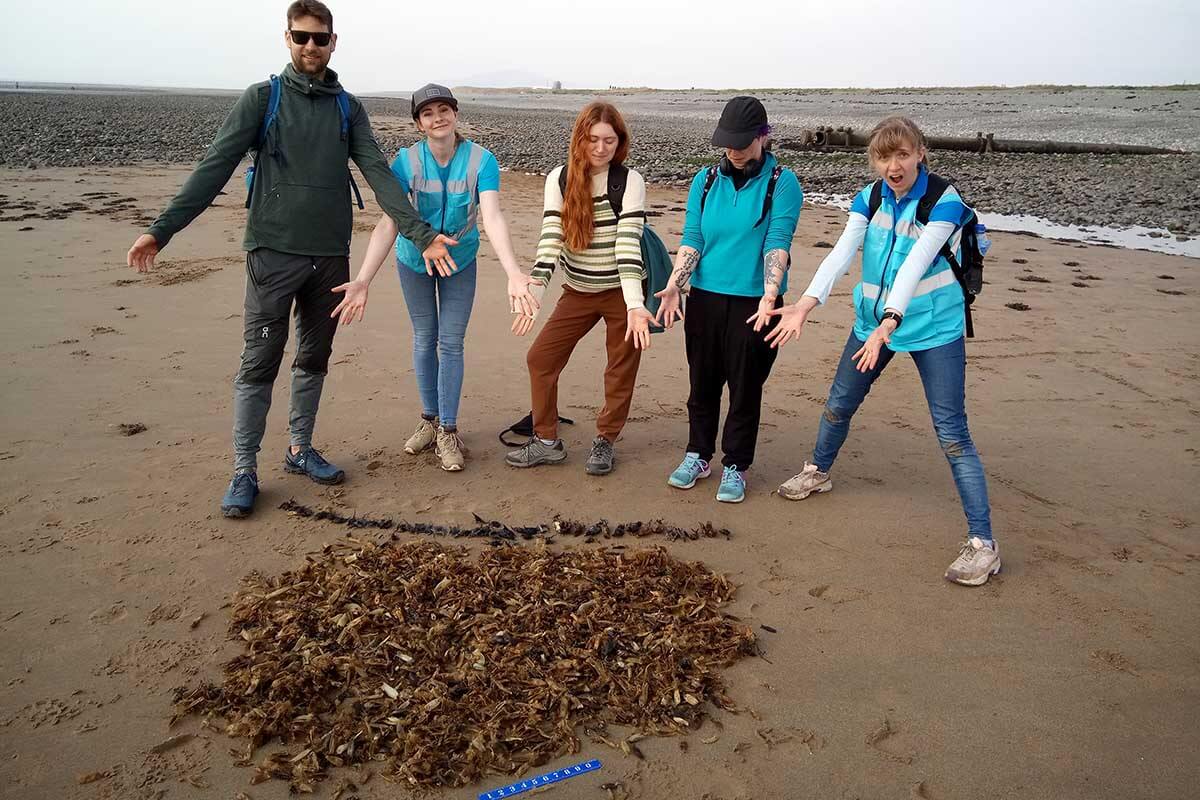
The Shark Trust has reported that a ‘fantastic’ 7,560 shark and ray eggcases were recorded this year by citizen scientists across the UK during its Great Easter Eggcase Hunt.
Held between 9 and 24 April this year, beachcombers and ocean enthusiasts from Orkney to the Isle of Wight reported their findings through a mixture of organised events, family trips or individual outings to the UK’s beaches.

The top species found were small-spotted catsharks (Scyliorhinus canicula) and thornback rays (Raja clavata). Each eggcase submitted to the Shark Trust’s database adds to the information gathered about sharks, skates and rays in the UK’s waters. With over 330,000 records since the project began in 2003, the Shark Trust can use this information to look for egg-laying hotspots and to assess whether there are increases or declines in certain species in different regions around the UK.
Of particular note was an event organised by The Bay: A Blueprint for Recovery, a partnership project with Cumbria Wildlife Trust and The Wildlife Trust for Lancashire, Manchester & North Merseyside, whose 280 event attendees found 3,313 egg cases – 3254 of which were from small-spotted catsharks – in and around the Morecambe Bay area. The North Wales Wildlife Trust also organised a number of events through Project SIARC (Sharks Inspiring Action and Research with Communities), bringing in a large number of egg case sightings from the North Wales coastline.

‘We’re seriously impressed with the number of eggcases that were reported to the Great Eggcase Hunt over the two-week Easter holidays, said Senior Conservation Officer, Cat Gordon. ‘There were so many dedicated events that took place, and it’s great to see so much of the coastline represented on the results map.’
Although the Easter Eggcase Hunt is highlighted as a special event over the Easter holidays, eggcase findings can be reported to the Shark Trust at any time of year. Citizen scientists are encouraged to get involved, or organise local events, through the Shark Trust’s website, where the charity has developed identification resources to assist with eggcase identification, which can then be submitted to the Shark Trust’s Recording Hub.
For more information about the eggcase hunt, visit www.sharktrust.org/great-eggcase-hunt. The full report from this year’s event can be found at www.sharktrust.org/geh-how-can-you-help



